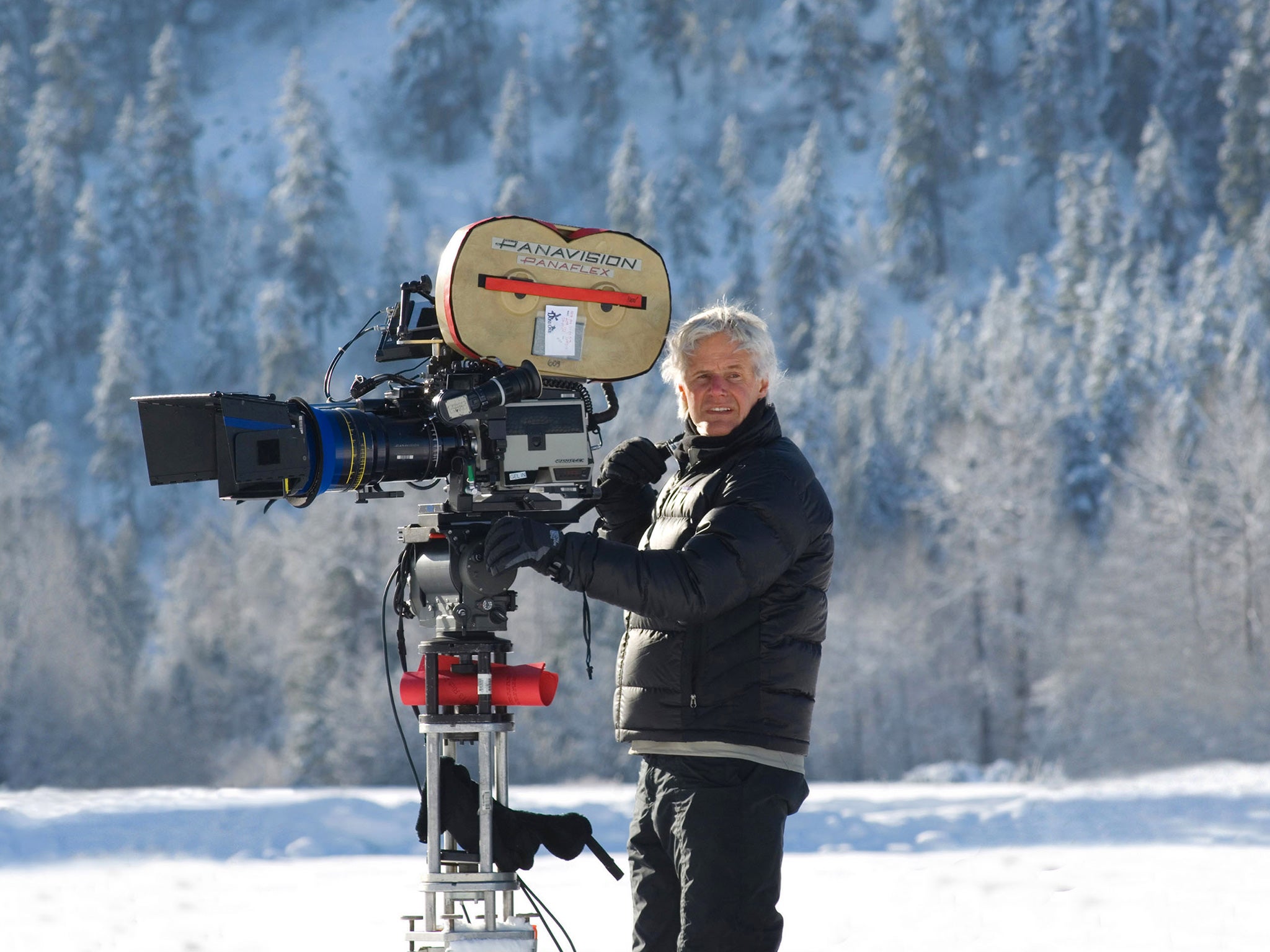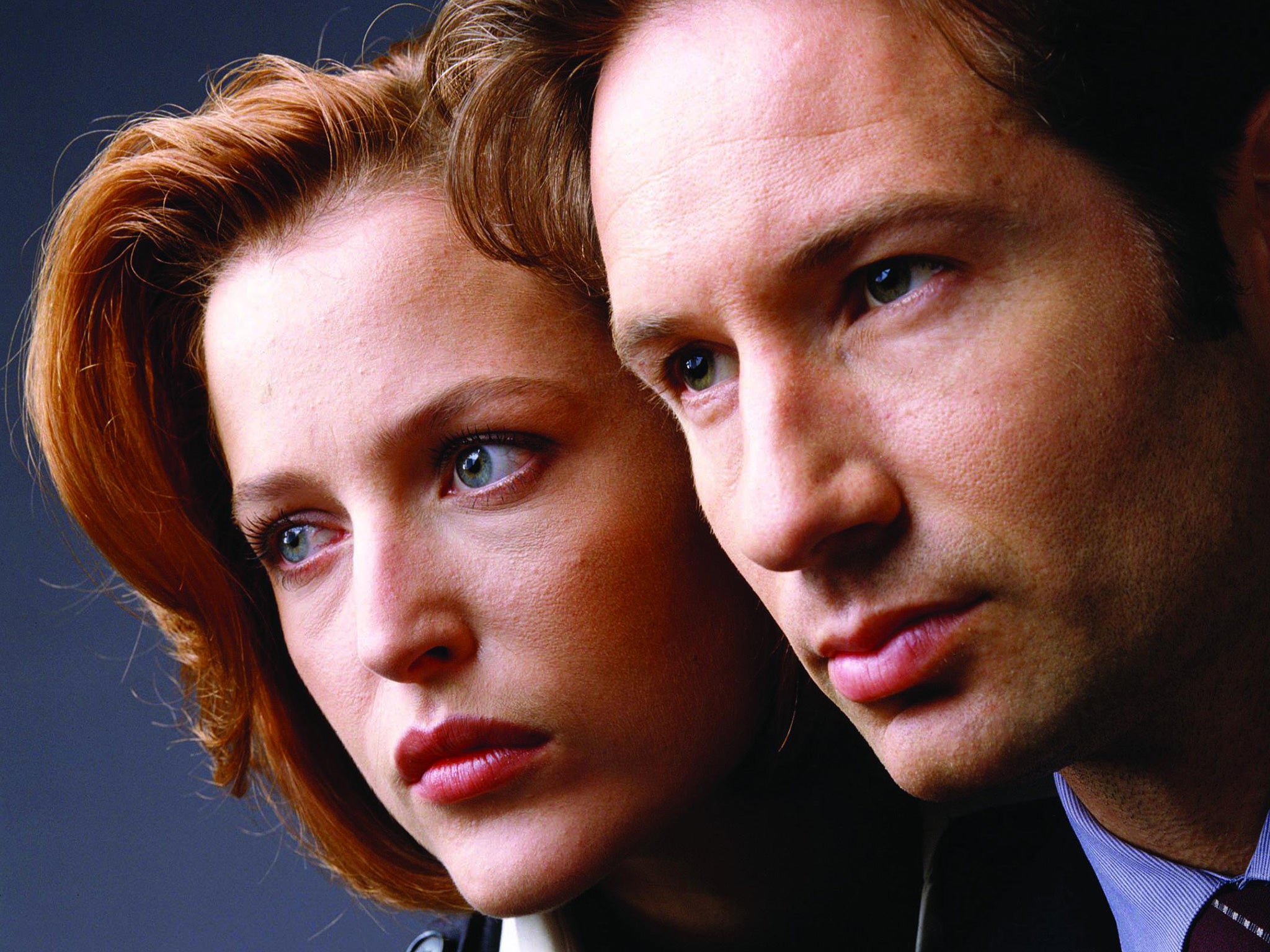The X-Files creator Chris Carter on government conspiracies and paranormal experiences
The 'esprit de corps' has persuaded him to return to the much-loved series

It’s a broiling hot July morning in Neuchâtel, Switzerland, and Chris Carter, creator of The X-Files, is patiently giving me an interview in the basement cafe at the Théâtre du Passage, the home of the Neuchâtel International Fantastic Film Festival. By rights, he shouldn’t be here at all. The Californian is midway through shooting a new six-part season of the show that originally ran from 1993 to 2002. He has left Mulder (David Duchovny) and Scully (Gillian Anderson) back in Vancouver, where the team has recently finished the second episode, to come to Switzerland. He promised that he would attend the festival and is not the type to break his promise.
Carter confides that he has had only four hours’ sleep and that he is continuing to tweak scripts and to respond to notes from his colleagues in Vancouver, even as he attends to his duties at the festival. “We’ve just got our sea legs as it were,” Carter says of the resumption of The X-Files after such a long lay-off. The series has been customised for the Obama era and will feature plenty of references to Edward Snowden, WikiLeaks and Julian Assange.
The original series thrived on conspiracy theories and shadowy behaviour from the US security agencies. “You can imagine I was the least shocked person in the world,” Carter reflects on recent revelations about US government-sanctioned eavesdropping and cover-ups. “It is not surprising to me at all… those assertions and allegations are what I think The X-Files was built on.”
In the new series, Carter promises that he and his team will “monkey” with The X-Files mythology “and give you a spin and twist on that”. There will be a combination of what he calls mythology episodes and the stand-alone “so-called monster episodes”. Six episodes doesn’t seem that much of a stretch, given that the first season of The X-Files consisted of 25 episodes, shot over a year, and the second season was 24.
“When you shoot six, you think it is going to be a piece of cake. That isn’t the case,” Carter sighs. “It will take eight months of our lives, so it is an enormous undertaking, even though it seems like only a slice of what we had previously done.”
Back in the show’s prime, it was Carter’s job to keep The X-Files “oiled and running” and to ensure that the bosses at Fox, from owner Rupert Murdoch downwards, were happy. Murdoch attended the screening of the pilot episode (“I’ve had very little contact with him, but the first thing he ever said to me was ‘I like your TV shows’”).
The stress factor was enormous. He was responsible for keeping the series “fresh” and delivering the ratings that Fox craved. The gratification came from knowing that massive audiences (30 million for one episode broadcast after the Super Bowl) were watching and enjoying his work. It is also a huge source of pride that The X-Files was deemed worthy of spoofing on The Simpsons. He still has a signed photograph from the Simpsons creator Matt Groening on his wall. “To make The Simpsons is to make the big time,” he declares, with surprising solemnity.
Carter seems a glutton for punishment. As he acknowledges, the old X-Files would demand his full commitment for 11-and-a-half months of the year. “It was as much work as you could possibly do. You worked from the moment you woke up until the moment you went to sleep. There was very little time even to stop to get a sense of how you were doing, or what you were doing.”
Why put himself through the grinder all over again? “The central reason is the esprit de corps. That is the reason to come back and do it again,” Carter says. “When you have a group of people working together, who all contribute to make it better, that is something. If you have never experienced it, that is somewhat miraculous. It is stepping into new shoes. That is not to say that the new shoes fit on arrival.”

Watch Apple TV+ free for 7 day
New subscribers only. £9.99/mo. after free trial. Plan auto-renews until cancelled.
ADVERTISEMENT. If you sign up to this service we will earn commission. This revenue helps to fund journalism across The Independent.

Watch Apple TV+ free for 7 day
New subscribers only. £9.99/mo. after free trial. Plan auto-renews until cancelled.
ADVERTISEMENT. If you sign up to this service we will earn commission. This revenue helps to fund journalism across The Independent.
In the years when The X-Files was off-screen, Carter would regularly read newspapers and spot stories that he felt were perfect material for the series. In the intervening years, he has developed various other dramas.
There was a show called Millennium, which was attacked by Scientologists who felt it was lampooning them, and last year a pilot for Amazon Studios called The After. To his disappointment, no series of The After was commissioned, in spite of the enthusiasm with which the pilot was greeted. The last outing for Mulder and Scully was the feature film, The X-Files: I Want To Believe (2008), which Carter directed. The critical response was muted and box-office receipts were disappointing, but Carter believes the new series can now once again capture the imaginations of a big, mainstream audience. If the new series is successful, there are likely to be further episodes.
The X-Files is celebrated as one of the first drama series of the internet age. Carter himself hasn’t embraced social media. “I do have an Instagram account, but that is for promotional reasons. I don’t communicate with anybody via social media otherwise,” he says. “It seems that people don’t value their privacy now, and I do value my privacy. I don’t know that anything I have to say [on social media] is all that interesting. I see its great value, but not for me personally.”
Carter is a tallish, good-looking, silver-haired Californian who used to edit a surfing magazine, but that doesn’t mean he is in the slightest bit relaxed. “I never thought of it as laid-back,” he says of the surfing subculture. “I was dealing with people who were the opposite of laid-back. These were, to use an Aussie expression, ‘aggro surfers’: people determined to change the surfing world.”

When he worked for Surfing Magazine, the production schedule was almost an intense as the one he encountered later in television production. “It was where I learned about doing something serially,” he recalls. No, Carter wasn’t an especially accomplished surfer himself but he has chased “some of the best surf in the world”, and still speaks in awe of a wave he rode at Sunset Beach in Hawaii. “I couldn’t believe that my feet had touched the beach again. It felt death-defying at the time.”
At the time that Carter devised The X-Files, he stumbled across startling research from a Harvard scientist called John E Mack that revealed three per cent of the US population actually believed in alien abduction.
One guesses the figure would be far higher today, partly because of the series. Mack allowed him to sit in on “a regression hypnosis session” with an alien abductee, an experience he describes as powerful and disturbing.
Does he believe in aliens himself? More than 20 years on from the creation of The X-Files, Carter gives a typically balanced and equivocal answer, one that combines the scepticism of Gillian Anderson’s Scully with the fervent credulity of Duchovny’s Mulder.
“That ‘I Want To Believe’ poster states it so perfectly for me,” the X-Files guru muses. “I am looking for a paranormal experience. I am looking for a miracle, I am waiting for the supernatural. I am waiting to be confronted with something I can’t explain.”
The new series of ‘The X-Files’ will be broadcast early next year
Join our commenting forum
Join thought-provoking conversations, follow other Independent readers and see their replies
Comments
Bookmark popover
Removed from bookmarks